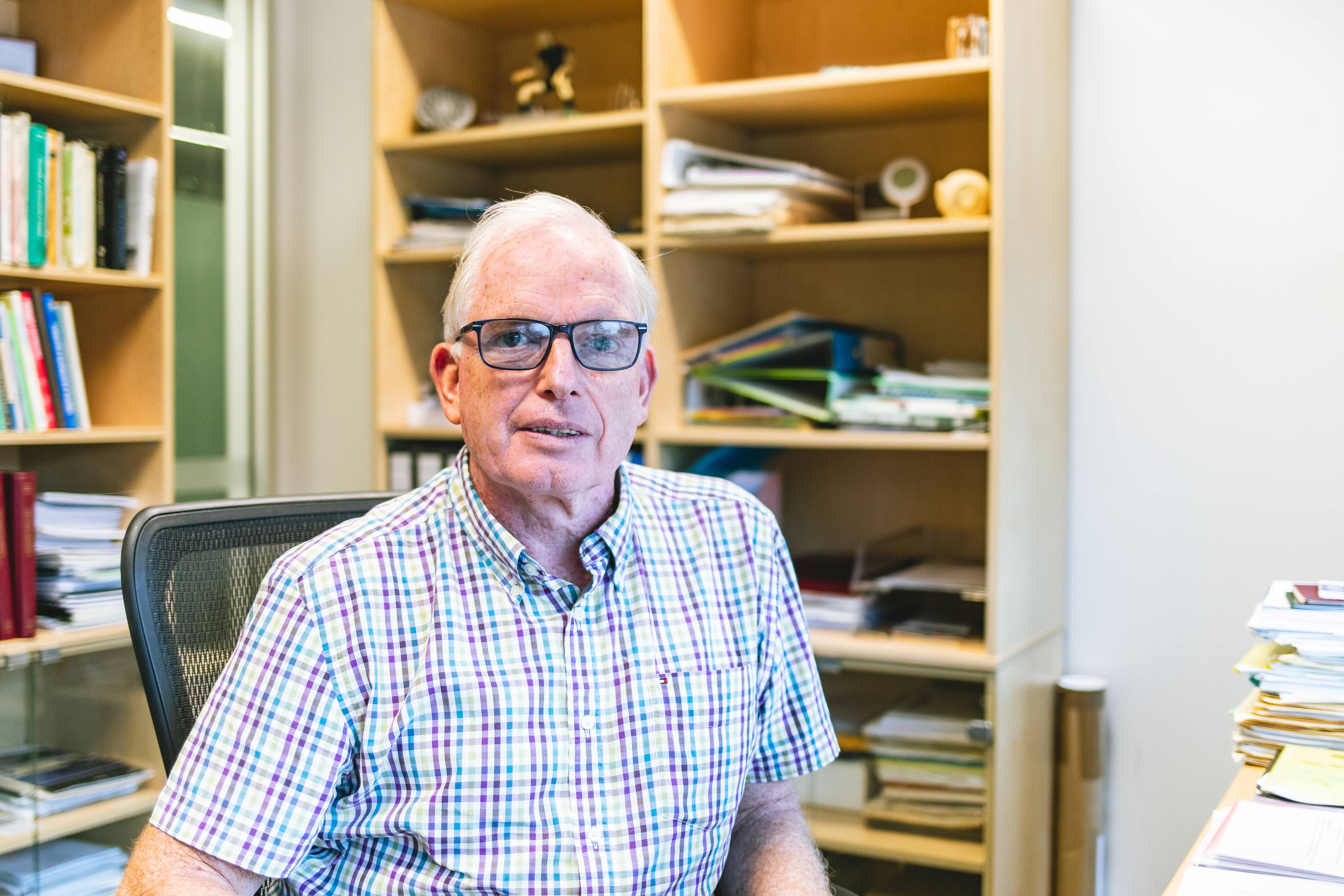The Intelligent Polymer Research Institute’s (IPRI) Prof David Officer is set to finish up at the University of Wollongong (UOW) this week, retiring after spending over 17 years with the Institute at the forefront of organic chemistry and helping pioneer the advancement of material science.
Prof Officer joined UOW in 2007 after many years of collaboration with IPRI Director Prof Gordon Wallace, whilst based in the Chemistry Department at Massey University in New Zealand.
Prof Officer was also a Chief Investigator and Electromaterials Theme Leader for the ARC Centre of Excellence for Electromaterials Science (ACES) during its many years of funding, helping lead the Centre’s research programs as well as supervising a number of Research Fellows and PhD students.
“In 1985, I obtained a chemistry lectureship at Massey University in New Zealand. I started a research program to make molecules for molecular electronics. That led to developing an interest in and being funded to do research in new energy materials,” said Prof Officer.
“As part of that program, I visited UOW in 1996 to work with Gordon [Wallace] to develop plastic solar cells. After 10 years of collaboration, I moved to Wollongong and IPRI as part of ACES - and have been here for over 17 years since.”
Prof Officer’s research started well before pursuing it as a career. With an interest in hands-on work and wanting to make a difference, he was drawn to organic chemistry research during his early university studies.
“Research always seemed to me a way to do something to change the world and make it a better place,” he said.
“I was drawn to organic chemistry because making molecules appealed to me - particularly molecules that had never been made before. I worked as a research assistant in the last year of my undergraduate degree and that fostered my determination to pursue research as a career.”
He would then go on to obtain a PhD in Chemistry at Victoria University of Wellington, New Zealand, which led to further work during an Alexander von Humboldt Fellowship at the University of Cologne in Germany.
“The objective of my PhD was to make a strained organic molecule that had never been synthesised before. Although I never made it, I was eventually involved in its synthesis in Cologne, Germany, after doing a postdoc at ANU,” he said.
More recently during his time at IPRI, Prof Officer has been responsible for the organic materials synthesis in the Materials Node of the Australian National Fabrication Facility (ANFF) and has been a lead figure in the development of edge functionalised graphene (EFG), an exciting material that is well on the way to being commercialised.
However, supervising PhD students has been the most rewarding part of his career.
“Training successful PhD students who have taken my crazy ideas and made them a reality has been my most proud achievement throughout my research career,” he added.
“Together, we have been able to change the world a little.”
Prof Wallace, who has worked closely with Prof Officer, will be sad to see him leave but stressed his gratitude and emphasised how important a research figure he has been since joining UOW and IPRI.
“David has been an amazing colleague and collaborator. He has this unique knack of imparting knowledge in such a subtle way that sometimes you don’t realise you’ve acquired it until down the track when you realise what to do and you remember who told you that. It’s an amazing gift," said Prof Wallace.
"David convinced me of his mantra; if you can’t make it you can’t use it. It’s true and I now live by it.”
Prof Officer will move on from his current position at IPRI and the University this week but we look forward to ongoing engagement in his new capacity at UOW.
